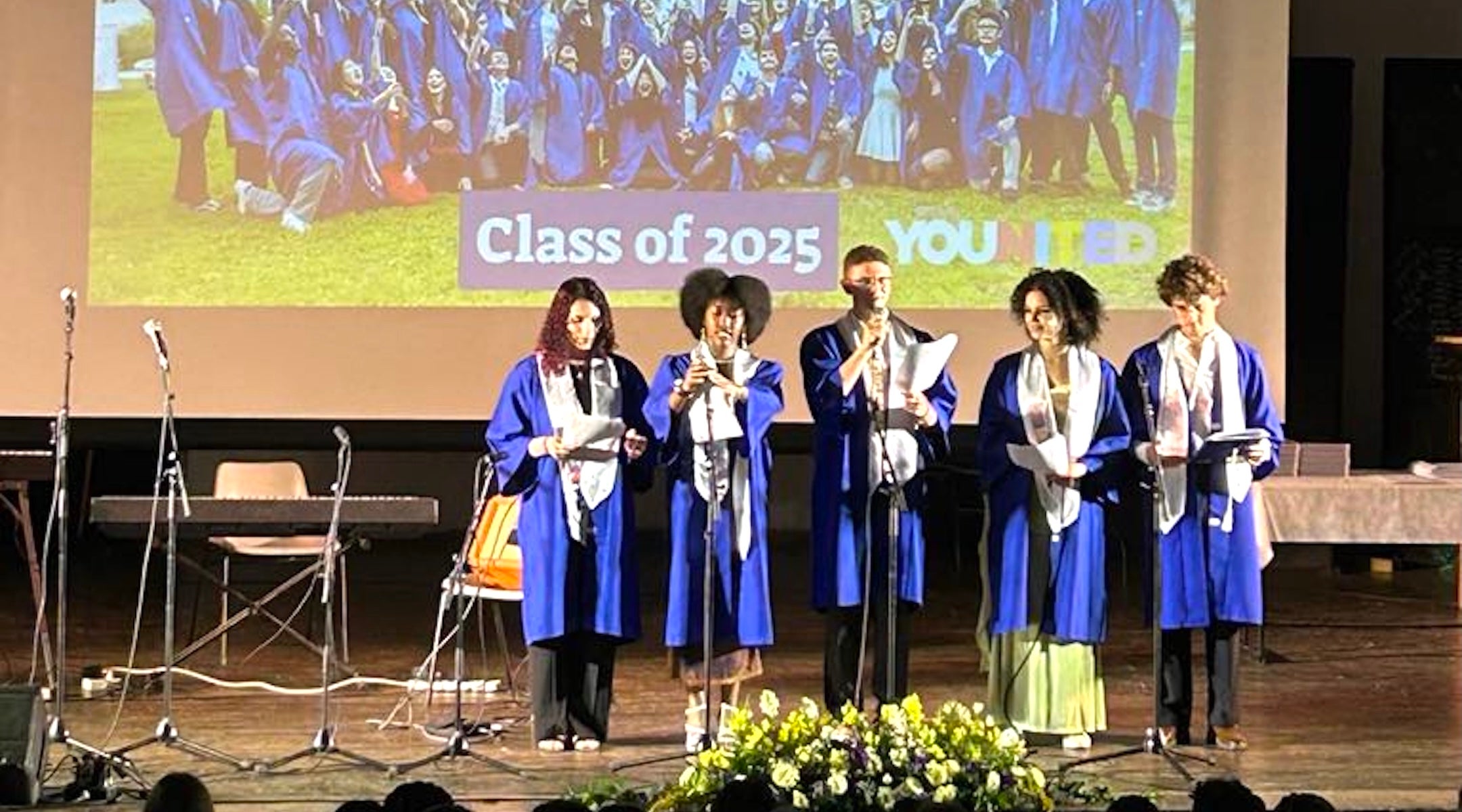Last week, we celebrated our son’s high school graduation in Israel. We gathered together with families of students — from diverse religious and ethnic backgrounds from all over the world — who earned their IB (International Baccalaureate) diploma at Younited, the boarding school on the shared-society campus of Givat Haviva, founded in 1949 to promote peace between Jews and Arabs in Israel.
Graduations are filled with emotion, regardless of the setting, but in the wake of the violent antisemitic attack in our hometown of Boulder, Colorado, I felt a mixture of anger, sadness and confusion. People who are very dear to me in Boulder suffered second- and third-degree burns at the hands of a man who felt that terrorism would somehow “free Palestine.”
I spoke to one of the victims, a close friend of ours, just hours before attending the graduation, and felt deeply troubled and helpless from afar. In my current role as interim co-executive director at Congregation Bonai Shalom, where many of the victims and witnesses to the attack are members, we received press requests from a wide array of news outlets over the last week. It has been difficult to be away from my community while they are so deeply hurt and struggling for support. We send our love and wishes for a full recovery of both body and soul to all who were injured or witnessed the attack.
Life in the United States has become intensely divided. We left Boulder in 2019 to spend a year in Israel with our three kids, and ended up staying for five years. I wasn’t present for the seismic shifts that happened in American society during the pandemic and after the Hamas attack on Israel on Oct. 7, 2023. Nuance was thrown out the window, and people found themselves on separate sides of an issue halfway across the world without much background or personal experience in the Middle East. Around the world, there aren’t mass protests about the war in Ukraine, human rights violations in Nicaragua, or the second genocide in just two decades in Sudan, but Israel/Palestine is ever present. The situation is complicated, and the media often seems to inflame rather than explicate.
Just prior to moving back to Boulder in July 2024, a former neighbor sent me a message via WhatsApp that was painful for me to receive. They believed that I wasn’t getting important news, which was the “pro-human rights” view of the situation in Israel and Gaza. Israel was cast as the genocidal, apartheid, settler/colonialist state, and Gaza as the victim whose brutal attacks were justified as resistance against an oppressive force. This person wasn’t interested in a dialogue or hearing anything from my perspective. Someone had “opened their eyes to the truth about Israel” over 40 years ago, and they felt compelled to educate me about the situation.
Even though this interaction overwhelmed my nervous system, for the most part, my experience of Boulder has been peaceful and friendly. It is not an extremely diverse town, but people are generally curious about different cultures and beliefs. I had to advocate for our kids when school picture day was scheduled on Rosh Hashanah or the school play on the night of the Passover seder. I figured it was simply an oversight on the part of the school administration, rather than an intentional action. I have always liked the fact that if there was something connected to Jewish life that I wanted for our family, I have the ability to create it in Boulder. Our Jewish communal institutions feel welcoming and open to creativity and change. The Boulder I know and love is calm, sporty, engaged and well-educated. It was a shock to hear the news of a terror attack specifically targeting Jews in a public space in our beautiful hometown.
My son and his best friend, a Palestinian Muslim, were two of the emcees for their graduation. They welcomed the guests to the event and then commented on the circumstances:
We would like to acknowledge the devastating war that has been taking place for the last 18 months. It is incredibly difficult to celebrate while the conflict persists with hostages still being held captive and with so many innocent people, among them many children, losing their lives in Gaza and in Israel, every single day. Therefore, we are immensely grateful to all of you who honor us with their presence. We pray for an immediate end to the hostilities in the entire region, for the safe return of all hostages to their families, and for a peaceful solution to the conflict.
Many people don’t know how to calmly talk about Israel, but these recent graduates simply spoke of what they hope for the future. They struggled together to forge relationships across significant barriers, studying for high-level exams while running to bomb shelters, and living with the stress of war. The IB curriculum focuses on critical thinking, a deep examination of facts vs propaganda, and verifying assumptions within a framework of knowledge. We desperately need this kind of learning and dialogue if we hope to co-exist in the world.
When reflecting on history, and witnessing the present political situation around the world, I don’t necessarily feel optimistic that the future will be better for the Jewish people. As Rabbi Jonathan Sacks wrote in his book, “To Heal a Fractured Word,” “Optimism and hope are not the same. Optimism is the belief that the world is changing for the better; hope is the belief that, together, we can make the world better.”
After seeing my son and his friends overcome tremendous challenges to create a community of mutual understanding and respect, I do feel a glimmer of hope in a broken world.
JTA has documented Jewish history in real-time for over a century. Keep our journalism strong by joining us in supporting independent, award-winning reporting.







